While France’s partial lockdown was quite relaxed compared to the ones imposed in spring and autumn last year, socialising has been dramatically diminished, and many have spent the past couple of months seeing few other people than their own household.
In case your French suffered as a consequence of the lack of a social life, here are some phrases which will help you make that crucial small talk now that bar, restaurant and café terraces are welcoming customers again.
Tellement hâte ! – ‘So excited!’ When you are making plans to meet up with friends at that long closed café terrace, you can add this phrase to emphasise how thrilled you are about seeing them, getting that sit-down coffee, or both. J’ai trop hâte (I’m too excited), underlines it even more.
Ça fait un bail – ‘It’s been a while’, or ‘long time, no see!’ Say this when you finally meet up with those friends and acquaintances you haven’t seen in months.
Ça fait trop longtemps – ‘It’s been too long’. This is a good phrase to underline that it has been long – way too long – since you saw your friends.
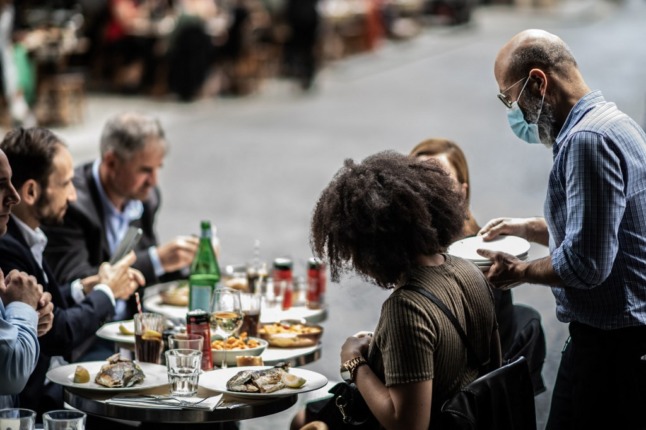
Vous m’avez manqué / tu m’as manqué – I’ve missed you (plural and singular). Can also be employed in the negative if the in-laws are already getting on your nerves.
Ça me fait vraiment du bien de vous / te revoir – ‘It’s so good to see you again’. Say this to show that seeing your friends is filling you up with good vibes you lacked alone in your apartment or house.
Qu’est-ce que tu deviens ? – It literally means ‘What are you becoming?’, but is a common expression when catching up with people you haven’t seen in a while. It’s similar to saying, ‘What’s new?’ or ‘What have you been up to?’ and is sufficiently vague to invite the listener to tell you about any changes in their lives.
READ ALSO The 9 French words you need to be very, very careful when pronouncing
Quoi de neuf ? – ‘What’s new?’ A bit slangier, but also one to ask about what is going on in a person’s life.
Tu t’en es sorti pendant le confinement ? – ‘Did you manage alright during the lockdown?’ A lot of people have been struggling to cope with the long period of isolation, and if you want to show your friend some empathy this is a good way to ask.
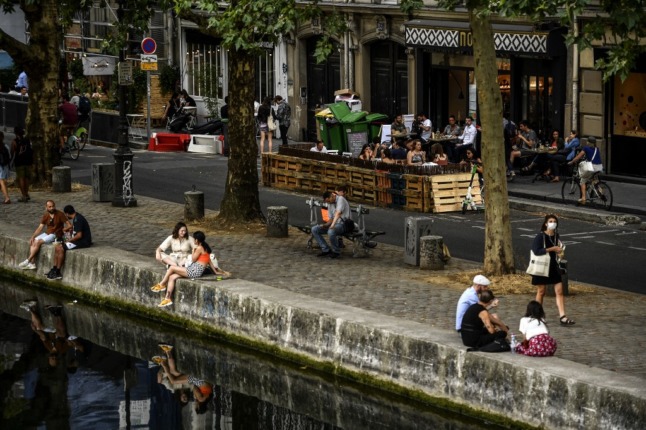
Je me sens au top ! – ‘I feel great!’ or ‘Never felt better!’ If your friends ask you how your are doing and you are just oh-so-excited about finally being able to make use of some of the best things France has to offer (cafés, bars, restaurants, museums, cinemas – take your pick). This phrase really communicates that you are feeling better than in a while. Likewise, if you’re feeling a bit vulnerable or under the weather, je ne me sens pas au top (I don’t feel great) is a good way to say that.
Ne m’en parle pas – ‘Don’t remind me’. Handy for when somebody asks how you coped with a particular aspect of lockdown. You can also use this phrase if you want to agree with what somebody has said, similar to, “Tell me about it!” For example: ‘ça fait trop longtemps que je n’ai pas fait de sport. / Ne m’en parle pas ! (‘I haven’t exercised in so long. / Tell me about it !).
Qu’est-ce que ça fait du bien – ‘That’s exactly what I needed’. By attaching qu’est-ce que to this simple sentence, you add emphasis and show how great you are feeling. Use it whenever you are doing something you love for the first time in months, whether that’s sitting on the beach and feeling the sun on your face, or taking that first sip of wine on a terrace.
Il était temps – ‘It was about time’. Use this note that something was about time: il était temps. Or as the beginning of a sentence that explains what was about time: il était temps qu’on sorte de ce confinement – It was about time that we got out of this lockdown.
Avec plaisir – Translates as ‘with pleasure’, and is to say that you are keen to do something, as in ‘gladly’. This is a polite phrase and great for work reunions, but you can also use it with your young and hip friends (oh, yes, your friends are young and hip and so are you). Avec grand plaisir means ‘with great pleasure’, and if you want to be extra enthusiastic you can say avec énorme plaisir – ‘with enormous pleasure’.
Partant – Être partant means to be up for something, and is often used when making plans, so it is perfect for navigating the endless possibilities of a post-lockdown world. For example: Je suis partant pour un verre (I’m up for a drink).
Allez ! – ‘Let’s do it’. It directly translates as ‘go’, but is really a way to show enthusiasm. On prend un autre ? / Allez ! (Shall we have another? Let’s do it!).
Cul sec ! – Let’s face it, there will be some drinking in bars in the coming months. This one translates directly as ‘dry bottom’, but it actually means ‘down it!’, as in empty your drink in one go.
READ ALSO: Cool cul – 13 of the best French ‘bottom’ expressions
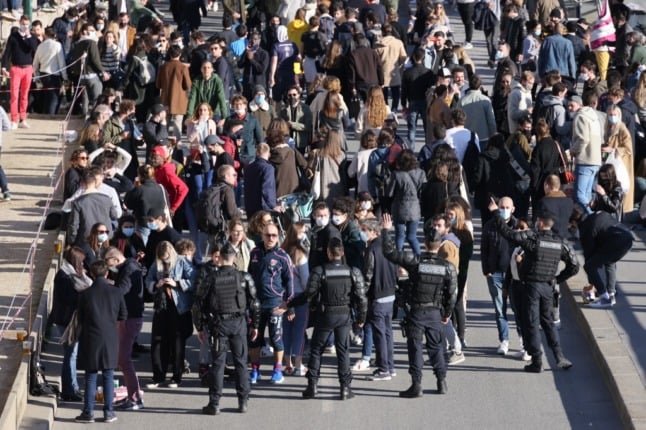
C’était noir de monde – ‘It was packed’. We’ve all gotten used to deserted streets, so it’s going to be a big shock to see shops, bars and restaurants open again, and international allowed. This phrase conjures up an image of a room or a street where you couldn’t see the ground because there were so many people.
On n’est jamais trop prudent – ‘Better safe than sorry’. Use this phrase when you find yourself in a crowd and are asking the person next to you to put their mask back on, while trying to remain polite. Indeed, the French health ministry recommends continuing to wear a mask and following social distancing guidelines even once you have been vaccinated, so we could be saying this for a while yet.
Vivement le vaccin – ‘I can’t wait for the vaccine’. This will be especially useful if certain activities, such as travel, require a vaccination certificate, and you are enviously watching everybody get vaccinated ahead of you.
Enfin ! – Finally! Our final word is twice as useful, because not only will it convey your sense of relief at being done with lockdown, it will also come in handy when the waiter finally brings you your food on your first night back in a packed restaurant.

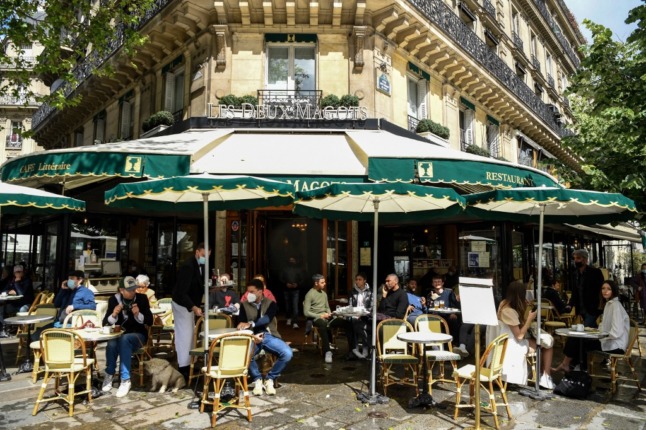
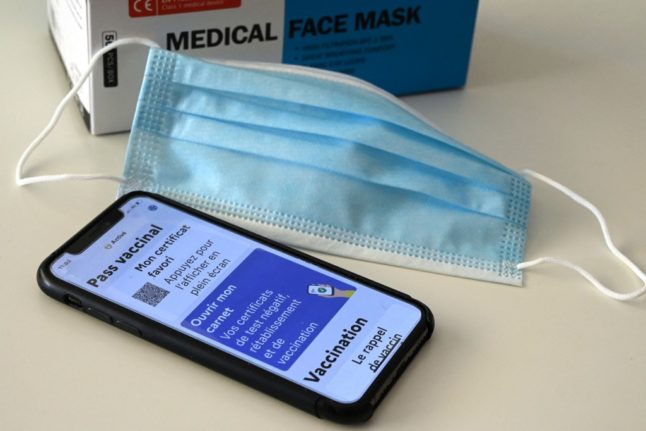
 Please whitelist us to continue reading.
Please whitelist us to continue reading.
I would have thought the main phrase for the British would have been “avez vous un cuppa”.
“[T]u t’en es sorti…? should be, in English, “Did you come through the lockdown all right?” “Alright” is never correct in English. Perhaps there is confusion because of “already”, as in “I’ve already thought of that.” However if one wants to ask whether people are primed to do something immediately, one would ask, “Are you all ready?” There is no such word as “alright.” Ouch.